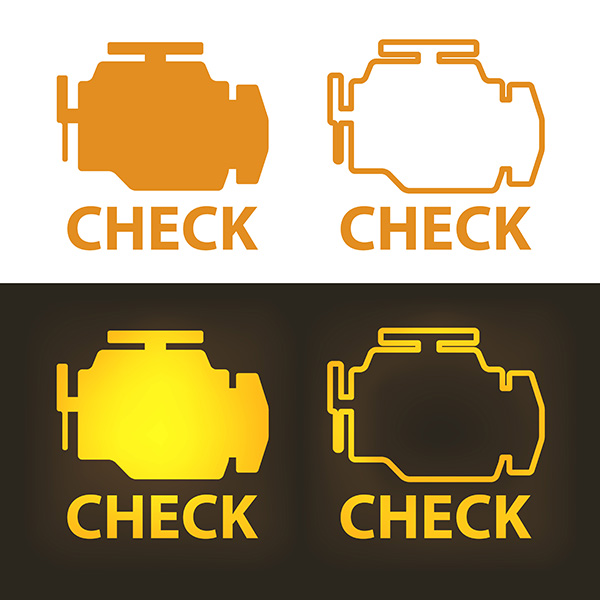
We've all been there—you start your car, and the check engine light doesn't turn off, or even worse - it keeps flashing on the dashboard. It's a moment that sends a shiver down your spine and raises a thousand questions. Is it serious? Should you drive or call a repair shop immediately? The truth is, a flashing check engine light is something you shouldn't ignore. Let's explore why this happens and what steps you should take to ensure your safety and your car's well-being.
What is the Check Engine Light for
The check engine light is part of your car's onboard diagnostics system. When it comes on, it means that the vehicle's computer has detected an issue with the engine or its components. This light can either be steady or flashing, and the distinction is paramount. A steady light indicates a minor problem, but a flashing light signals a severe issue that requires immediate attention.
Common Causes of a Flashing Check Engine Light
Engine Misfire
One of the most common causes of a flashing check engine light is an engine misfire. This happens when one or more of your engine's cylinders fail to produce power. Misfires can be caused by a variety of issues, including faulty spark plugs, bad ignition coils, or fuel delivery problems. Ignoring a misfire can lead to more severe damage, such as a damaged catalytic converter, which is expensive to repair.
Catalytic Converter Issues
The catalytic converter is a vital part of your vehicle's emission control system. It helps reduce harmful emissions by converting exhaust gasses into less harmful substances. If your check engine light is flashing, it could mean that your catalytic converter is failing. This can happen due to prolonged engine misfires or other issues that cause the engine to run rich or lean. A damaged catalytic converter can affect your car's performance and fuel efficiency.
Fuel System Problems
Issues with the fuel system, such as a faulty fuel injector or fuel pump, can also trigger a flashing check engine light. These components are essential for delivering the right amount of fuel to the engine. When they fail, the engine can run too rich (too much fuel) or too lean (not enough fuel), leading to misfires and other performance issues.
Oxygen Sensor Failure
Oxygen sensors monitor the amount of oxygen in the exhaust and help adjust the air-fuel mixture for optimal performance and efficiency. A failing oxygen sensor can cause the engine to run poorly and trigger the check engine light. If left unaddressed, it can damage other components, like the catalytic converter.
Ignition System Faults
The ignition system includes components like spark plugs, ignition coils, and the distributor. Any faults in this system can lead to misfires and a flashing check engine light. Regular maintenance, such as replacing spark plugs and ignition coils, can help prevent these issues.
Why a Flashing Check Engine Light is Dangerous
A flashing check engine light is a warning that your vehicle is experiencing a serious problem. Continuing to drive with a flashing light can lead to significant damage and major repairs. For example, an engine misfire that is ignored can overheat and damage the engine or catalytic converter, resulting in a repair bill that can easily run into the thousands of dollars.
Moreover, driving with a severe engine problem can compromise your safety. An engine that is misfiring or running poorly can lead to unpredictable performance, such as sudden loss of power or stalling, which can be dangerous, especially on highways or busy roads.
Immediate Steps to Take
Reduce Speed and Load
If your check engine light starts flashing, reduce your speed and avoid heavy acceleration or towing. This can help minimize the stress on your engine and reduce the risk of further damage.
Find a Safe Place to Pull Over
If you are driving - pull over as soon as it is safe to do so. Continuing to drive with a flashing check engine light can lead to more severe damage and potential safety hazards.
Check for Visible Issues
Once you've pulled over, check for any visible issues, such as smoke from the engine or unusual smells. These can be indicators of a severe problem.
Call for Assistance
Having your vehicle checked by a professional technician as soon as possible is important. If you are unsure about driving the car to a repair shop, it's best to call for a tow to avoid causing further damage.
Preventive Measures
To prevent a flashing check engine light, regular vehicle maintenance is essential. Here are a few tips:
- Regularly Change Spark Plugs and Ignition Coils: These components prevent misfires and ensure smooth engine performance.
- Monitor Your Vehicle's Performance: Pay attention to any changes in how your vehicle drives. Unusual noises, reduced power, or poor fuel economy can be early signs of trouble.
- Schedule Routine Inspections: Regular inspections by a qualified technician can help catch issues before they become serious problems.
Your safety is our priority. Call Mancinelli's Auto Repair Center for immediate service if your check engine light is flashing.